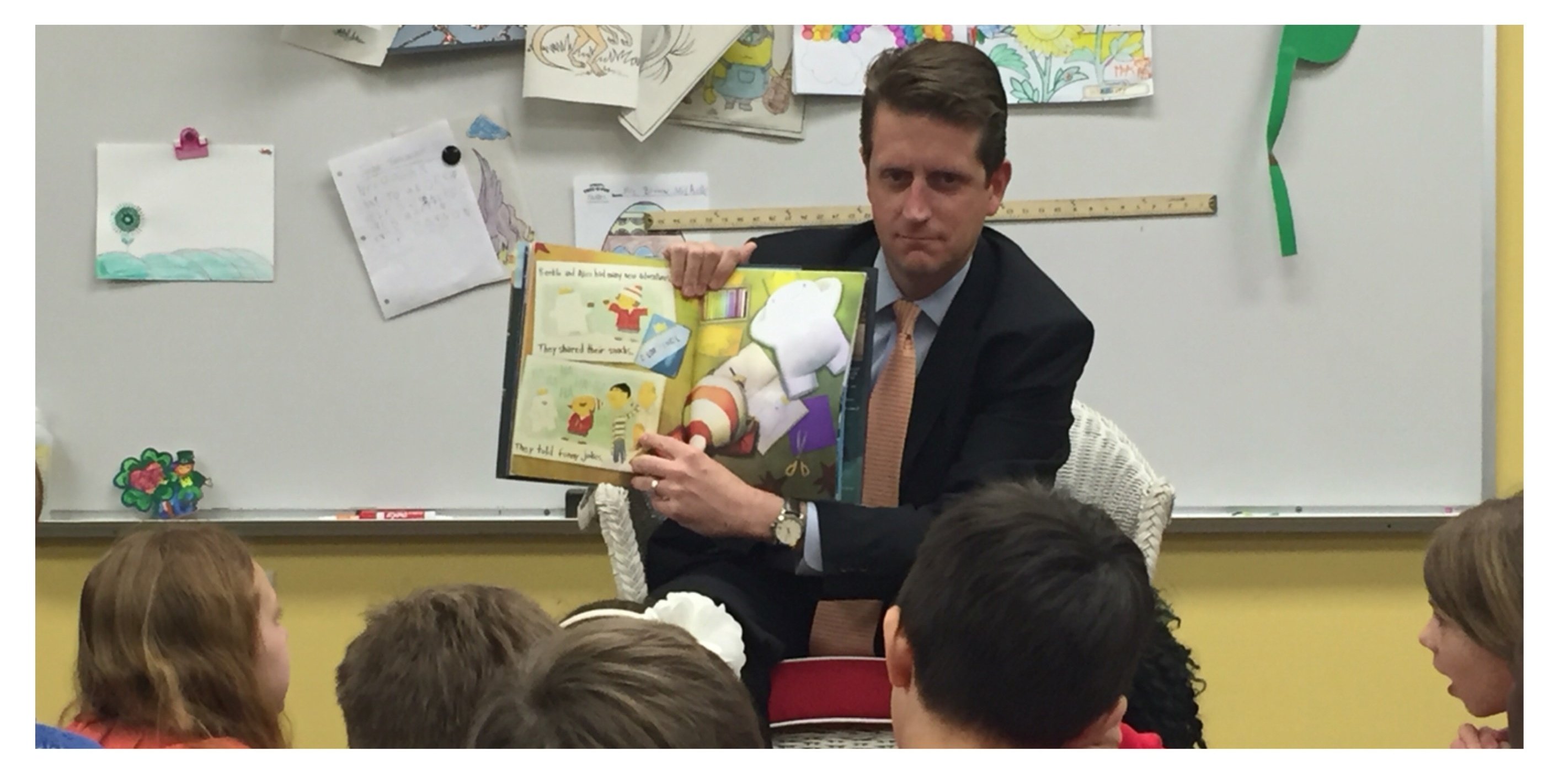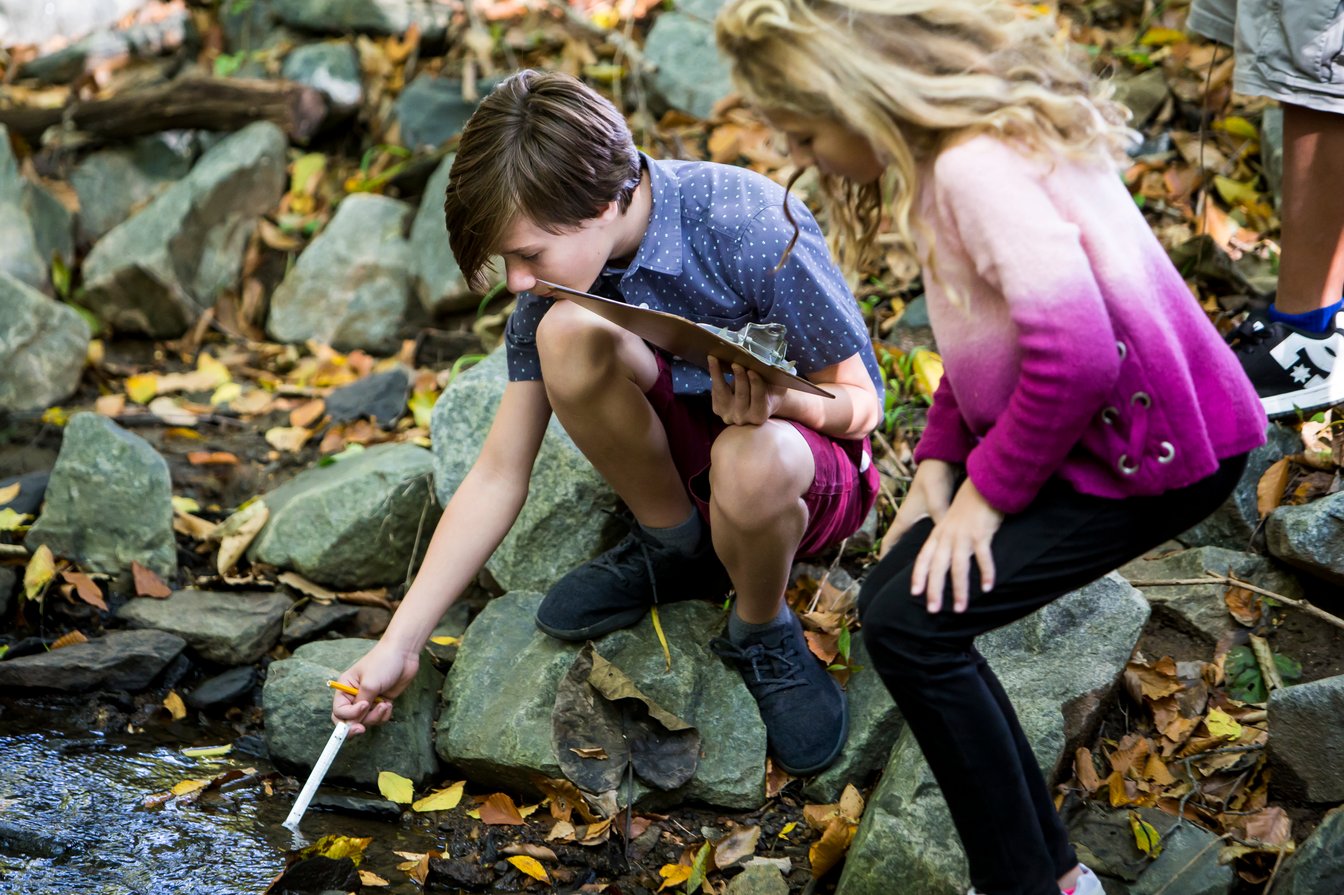Elementary school is the perfect age to teach coding. Learning to code is fun, empowering, and provides essential 21st century skills. According to the US Department of Commerce, within the last ten years STEM (science, technology, engineering, and math) employment opportunities have grown by 24.4% vs. only 4% in non-STEM fields, and STEM-focused employees make an average of 29% more than non-STEM workers. It is important that we provide our children with the computer science skills necessary to be successful.
Topics: Education, Academics, Parenting Tips, STEM
Is It Writing or Recess?: Getting Kids Excited About Writing
The schedule says “language arts,” but, at first glance, you might think the fourth-grade class looks more like they’re having recess than writing. Students are scattered around the room and spilling into the hallway, happily chatting in pairs, drawing pictures, sticking and re-sticking multi-colored Post-Its on bright yellow paper, or laughing uproariously at a story being told by a teacher. But, believe it or not, this is what writing looks like in our classes! This past summer we traveled all the way to Barcelona, Spain and joined nearly 200 other teachers from all over the world at a summer writing institute created by Columbia University’s Teachers College Reading & Writing Project. The week-long training introduced us to new ways to think about, talk about, and teach about writing, and our classes at Sanford School haven’t been the same since. Now when we approach writing lessons we think about how we’ll support the three different types of communication that we want to see happening throughout the class: teacher-to-student, student-to-student, and student-to-self.
Topics: Education, Academics, Parenting Tips
Parent-teacher conferences have been a staple of communication between home and school for many decades, and certainly, there is value in maintaining those important traditional conversations, which often take place without the student being present. This communication is a key to student success. However, the paradigm is shifting, and the age-old process has changed in many schools, as the students are frequently not only attending the conference but actually leading it. Monica Martinez, a senior scholar for the William and Flora Hewlett Foundation and co-author of a book that addresses school approaches that facilitate deeper learning, queried, “How many of us, as students, appreciated being talked about in the third person as if we were invisible?”
Student Led Conferences (SLC's) are not new by any standard, but they are gaining momentum and popularity, not because they are a “trend,” but because they encourage and empower students from the elementary level through high school to take responsibility for their learning in a way that might not have happened previously. The format for an SLC can vary widely, from the use of a questionnaire, sharing a portfolio, or highlighting a strength and area of growth in every subject, but the common denominator requires that the student communicates to the parents WHAT s/he is doing in school and WHY.
Topics: Education, Academics, Parenting Tips
Personalized learning is when the planning, teaching, and assessment focus on the individual needs and interests of each student. It provides an education that includes differentiation and individualization, tools which support student success.
Topics: Education, Academics, Parenting Tips
How To Use a Calendar to Help Your Student Succeed
“Transform a wish into a goal by putting a date on it.” Peter Turla
Managing time is a universal issue; certainly, it is not confined exclusively to students. However,
Many schools have incorporated technology into the daily lives of students and their families by posting all class assignments and grades online. The student can, and must, check their schools' website portals for a listing of all classwork that is due. Having all assignments in one accessible place can be extremely helpful. Because of the number of subjects a student takes, that list can cover quite a bit of space and, at first glance, may seem a bit daunting. A closer inspection usually reveals due dates that are staggered, which means that the student must now prioritize the workload. It is not enough to refer to the website daily and use that as the homework sheet. No time is being allocated for long-term projects, test review, or work that is expected to take several nights to complete.
For many students, this is the juncture where “high tech” should join forces with “old school.” Enter the student planner or some other form of a calendar. By transferring the information from the school website portal into their own calendar, the student can then begin to plan for the successful completion of all assignments.
Topics: Education, Academics, Parenting Tips
How to Help Your Child with Homework
Who likes to do homework? We all have work that we need to take home in different forms, but it helps us to prepare for our next day, week, or month. Most students have nightly work, preparations for projects or tests, which is designed to prepare children with the necessary skills to succeed at various levels of educational development. Daily homework should reinforce skills learned in the classroom and preparing for tests/projects should require time to plan and work.
Each student is a unique individual, and how and when he or she works needs to be specific to them. What may work for your first child may not work best for your second child. Plan, plan, plan and be sure to have a good home-and-school partnership to ensure success for each of your children.
Here are a few quick tips on how parents can help with homework:
- Provide a quiet, distraction free work area such as a desk or table with good lighting and no distractions.
- Routine time to work—it’s a good idea to schedule a similar time each day to do work so each child gets into a routine.
- Help your child create a homework plan each night—if you know that one night is busier than others, help your student plan out how to get the work completed and/or work ahead for the next busy night. A visual calendar helps with this organization skill.
- Parent-teacher partnership—know the expectations of your child's teachers so you can help reinforce those expectations at home.
- Have the student do his or her own work—let’s face it, you’ve already completed the grade your child is currently enrolled in, so it is his or her turn to learn and do the work on their own.
- Role model—if your child is working, you can be working too. You can be prepping for dinner, balancing your checkbook or completing any other adult work you may have. This sets a great example of good work ethic for your child.
It’s that time of year! Though I am not talking about the holidays, the beginning of a school year also means a lot of shopping for parents. With the impressive amount of tasks that need to be accomplished, coming up with a comprehensive list of all that needs to be purchased for the upcoming academic year is something that most parents just don’t have time for. Here is a basic list to help guide any parent and child in their search for school supplies.
Topics: Academics, Health & Wellness, Parenting Tips
Why We Read: Sanford School Shares a Love of Literature
Reading is more than a valuable skill for academic and career success; it can be a door to an adventure, exposure to a new culture, or a temporary escape to another realm. At Sanford School, we encourage students to read for meaning, but also to read for joy. Here are some favorite books to read and reasons to read from Sanford's administration, faculty and staff:
"I love reading because it allows me to travel through time and across borders even when I’m in the waiting room at the dentist or curled up cozily on my couch. I love the way reading can challenge me to think about what I believe and why I believe it." For me, Edwidge Danticat offers the marriage of these two experiences in her Haitian novels, particularly my favorite, The Farming of Bones, -Brianna Smale, English Teacher, and Department Chair.
"If it is fiction, then I can taste what it might be like to travel to different places and times. If it is non-fiction, then I am able to bring meaningful input into conversations with my friends about various topics. My favorite authors are Rick Riordan and Tamora Pierce." A favorite book is
Learning Outside: Connecting Children with Nature
Topics: Education, Academics, Health & Wellness
What is the Value of a Private School Education?
As with many families, the decision to send our children to a private school required a lot of thought. We both attended public schools, so had no experience with the world of private schools. And, yes, the financial commitment was a challenge. But we firmly believe that the decision to send our sons to Sanford School played an important role in their success in college, their careers, and their overall happiness.
Among the many benefits of an independent school such as Sanford, the small class sizes, emphasis on individual attention, and excellence of the teachers stand out.
We offer two stories that illustrate why we believe this:

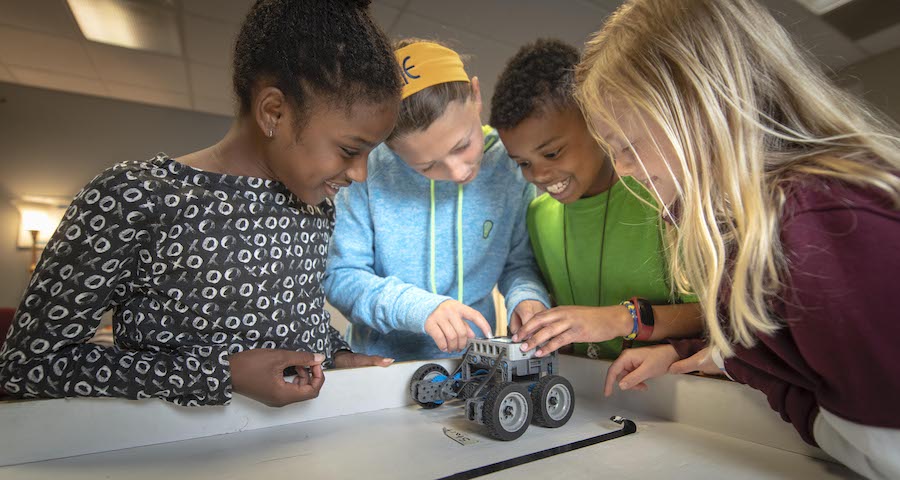
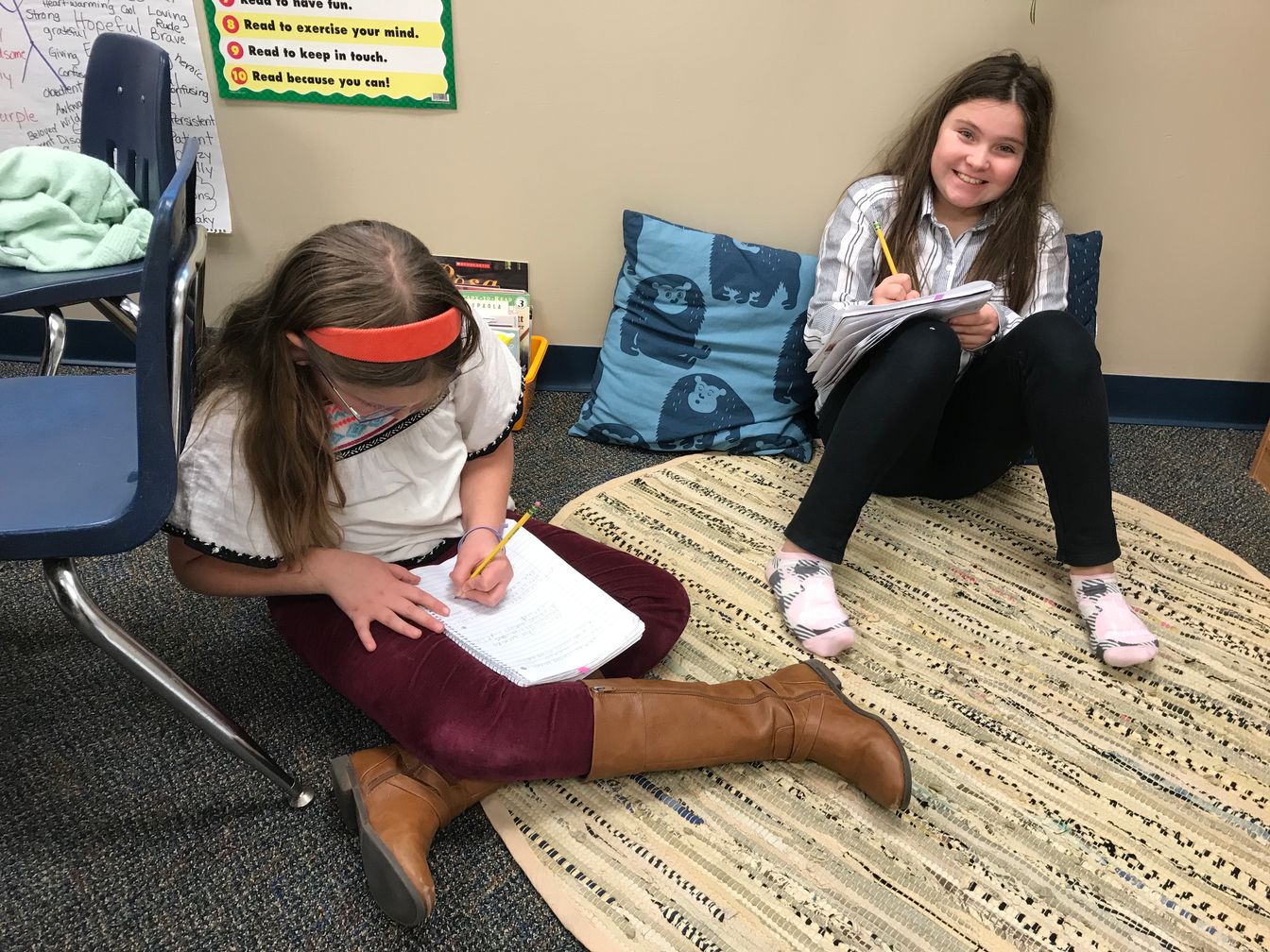

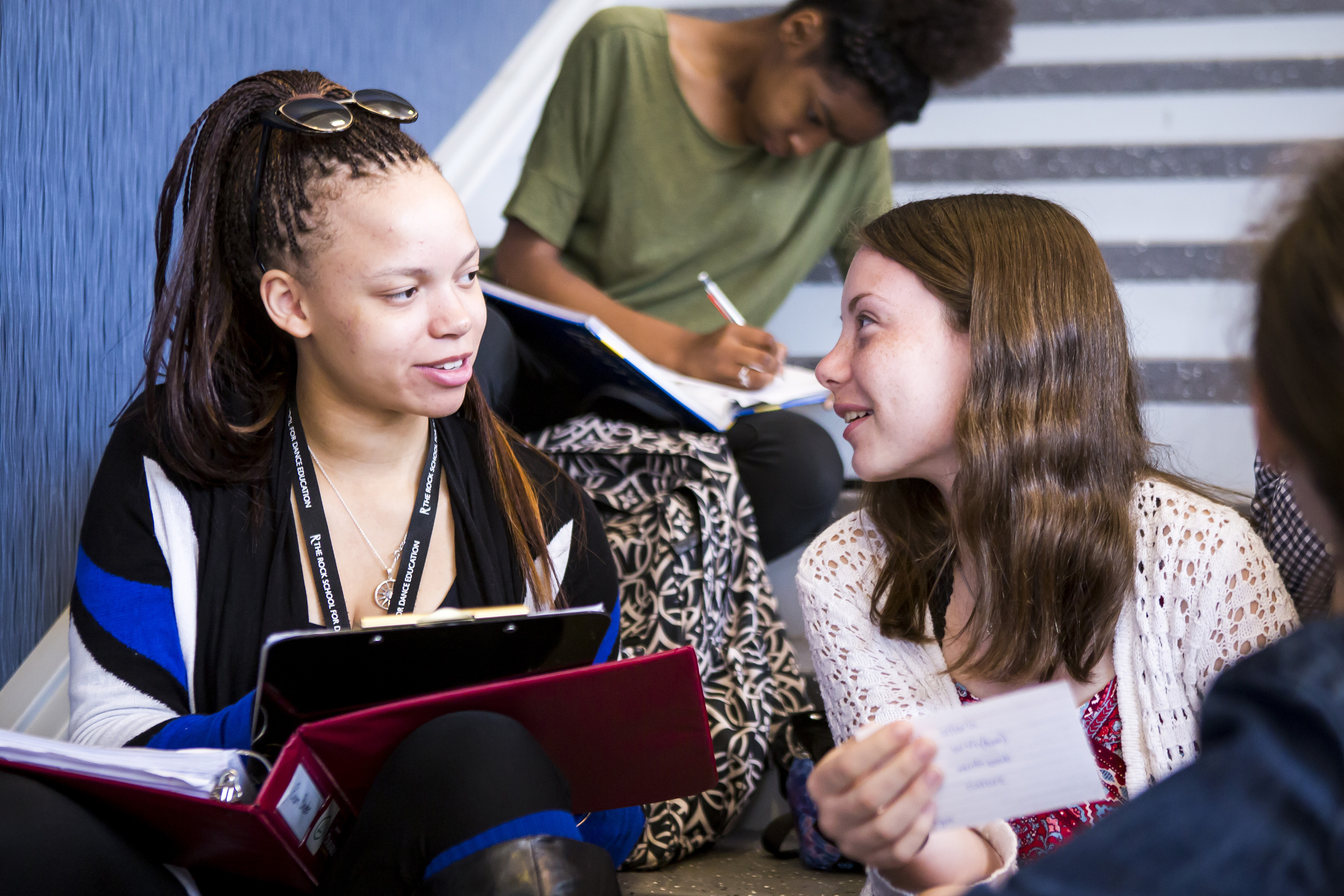
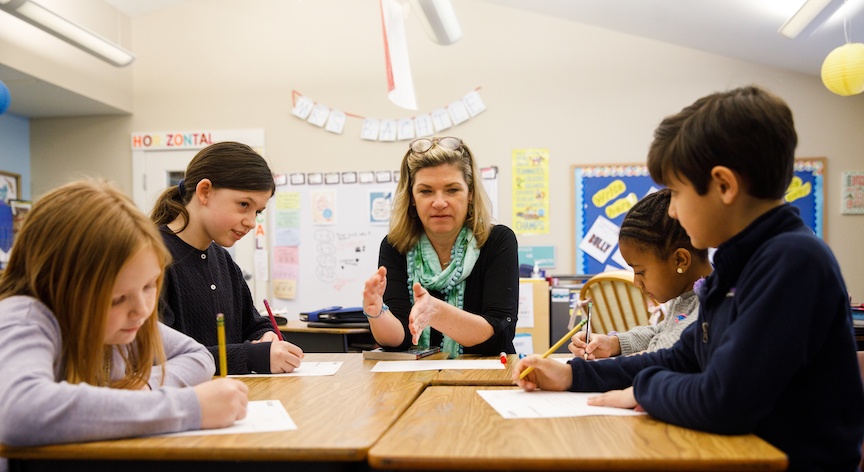
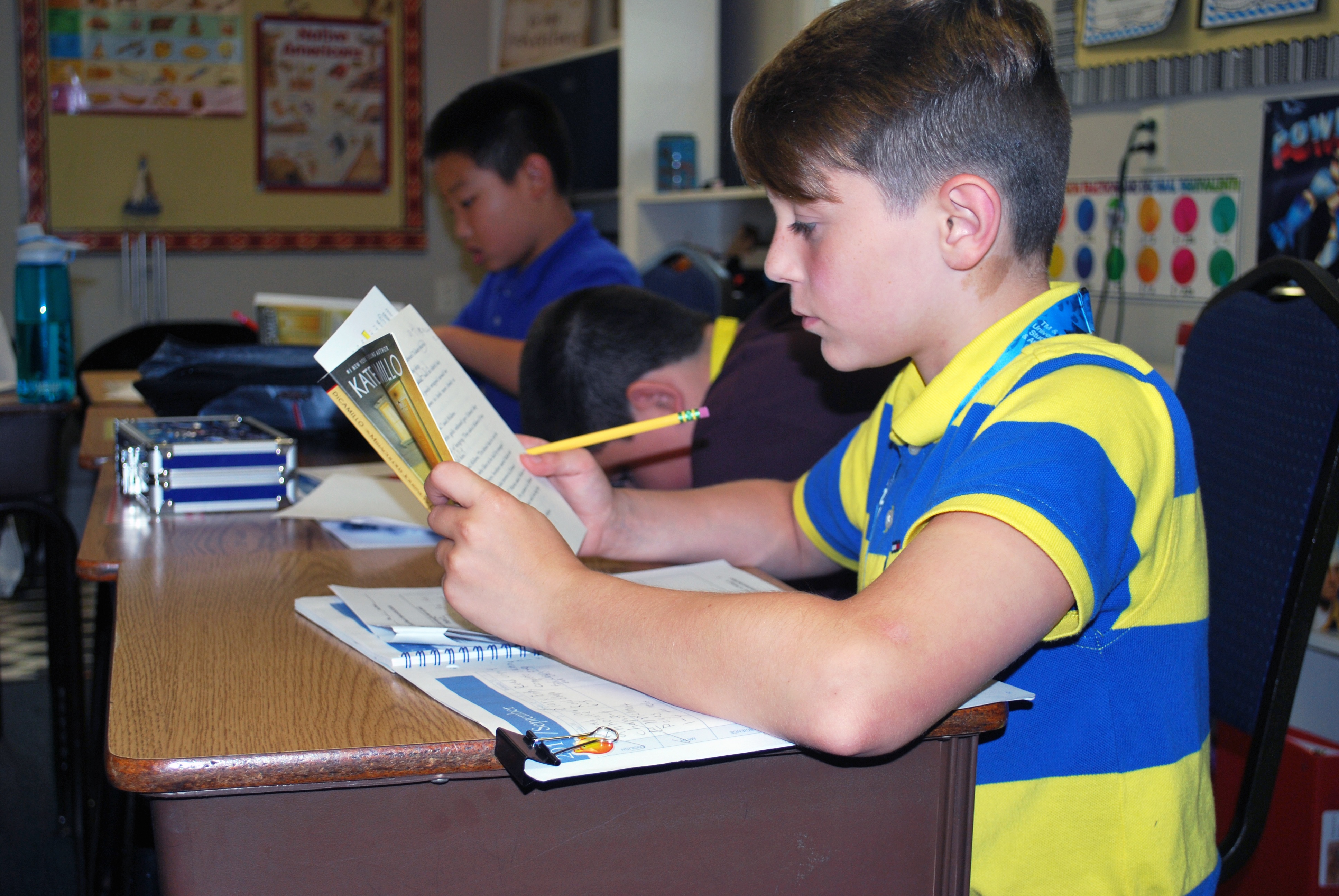

%20-%20Copy.jpg)
